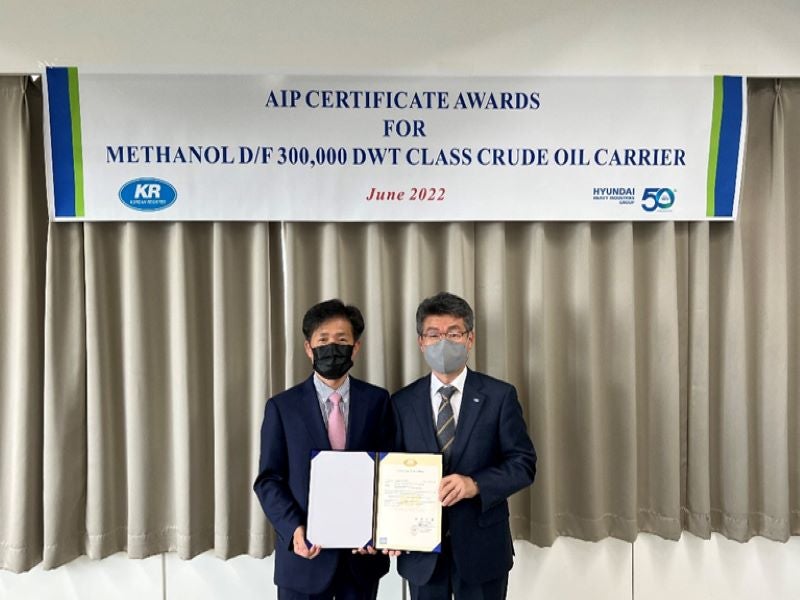
Classification society Korean Register (KR) has granted approval in principle (AIP) for a methanol dual-fuel very large crude oil carrier (VLCC).
Developed under a joint project between KR and Hyundai Heavy Industries (HHI), the 300,000DWT VLCC can be driven by methanol and marine gas oil (MGO).
HHI has designed the vessel in such a way that the methanol fuel tank can be placed either on the open deck or in the cargo area.
The safety and suitability of the vessel’s design have been verified by KR as in line with domestic and international regulations.
Due to its lower technical difficulties than liquefied natural gas (LNG) and relative less toxicity than ammonia, methanol is expected to have a high potential for commercialisation, stated KR.
Like bunker oil, methanol can be stored in a liquid state at room temperature.
How well do you really know your competitors?
Access the most comprehensive Company Profiles on the market, powered by GlobalData. Save hours of research. Gain competitive edge.

Thank you!
Your download email will arrive shortly
Not ready to buy yet? Download a free sample
We are confident about the unique quality of our Company Profiles. However, we want you to make the most beneficial decision for your business, so we offer a free sample that you can download by submitting the below form
By GlobalDataThis makes it easier to store and transport compared to LNG, hydrogen and ammonia, which turn into a liquid state at 162°C, -253°C and 34°C, respectively.
KR stated that: “The proportion of LNG-fuelled vessels currently continues to increase due to the fuel’s mature technology and supply infrastructure, but further transition to decarbonised alternative fuels is needed as strengthened greenhouse gas emission regulations come into force.”
Last month, the American Bureau of Shipping (ABS), the Republic of the Marshall Islands (RMI) Maritime Administrator and HHI partnered on the development of a next-generation ultra-large liquefied carbon dioxide (LCO₂) carrier.







